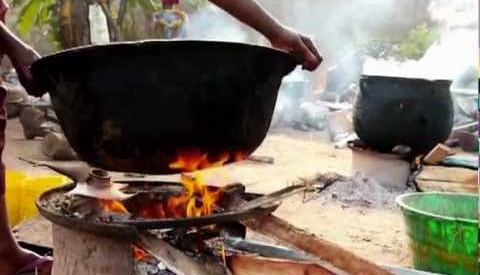The Nigerian Association of Liquefied Petroleum Gas Marketers (NALPGAM) has described as unfortunate President Muhammadu Buhari regime’s reimposition of VAT on cooking gas, warning that Nigerians may have to up to N10,000 to buy a cylinder of cooking gas.
The marketers appealed to Mr Buhari’s regime to reconsider the imposition of VAT on imported LPG in the country. Bassey Essien, NALPGAM’s executive secretary, appealed on Wednesday in Lagos.
The regime had in 2019 gazetted the removal of VAT on LPG, also known as cooking gas, as a product to increase its domestic utilisation. Mr Essien said the policy’s reintroduction would further increase the prices of cooking gas across the country.
“It is unfortunate that the Federal Inland Revenue Service and the Federal Ministry of Finance have gone to resuscitate a product that has been exempted and gazetted from VAT,” said Mr Essien. “This was gazetted in 2019 and has encouraged domestic gas utilisation.
“Nigerians are already complaining about the prices of cooking gas across the country, and this would further worsen the situation.’’
He noted that while the government was desirous of expanding its revenue base, it should also consider the impact the reintroduction of VAT on the importation of LPG would have in the country.
“However,” he warned, “this goal will be defeated if cooking gas goes out of the reach of ordinary Nigerians due to the current increment in prices of the commodity.”
He mentioned that the price of a 12.5kg cylinder of cooking gas cost about N6,500, sold “for about N4,000 averagely a few months back.’’
He also noted that more than one million metric tonnes of gas were consumed by Nigerians in 2020, with about 60 per cent of the product imported by marketers. “We import to augment the 350,000MT allocated to the domestic market by the Nigerian LNG Company Limited,” added Mr Essien.
NALPGAM’s executive secretary insisted that charging VAT on LPG “simply means that Nigerians will pay more, and if we go on this route, the price of 12.5kg might hit N10,000 in some parts of the country by December.’’
He noted that some cooking gas users were gradually reverting to using kerosene stoves and firewood with the attendant health implications.
However, Sarki Auwalu, the Department of Petroleum Resources director, said the government reimposed VAT on imported LPG to attract investments to local gas production.
“For me personally, I wouldn’t like us to be importing LPG. This is a country that has over 600TCF of gas. We have proven reserves of 206TCF,” Mr Auwalu pointed out. “If you allow LPG to be imported without any restriction, it means you are not giving opportunity for upstream investors that will drill and get this gas.”
According to him, removing 7.5 per cent VAT on LPG importation discourages potential investors in the upstream sector, which transcends to double losses for the government.
“Government is losing through VAT and losing investors, which are double jeopardy. So for us, it is a policy to encourage the inflow of investment in the gas sector,’’ he said.
(NAN)






